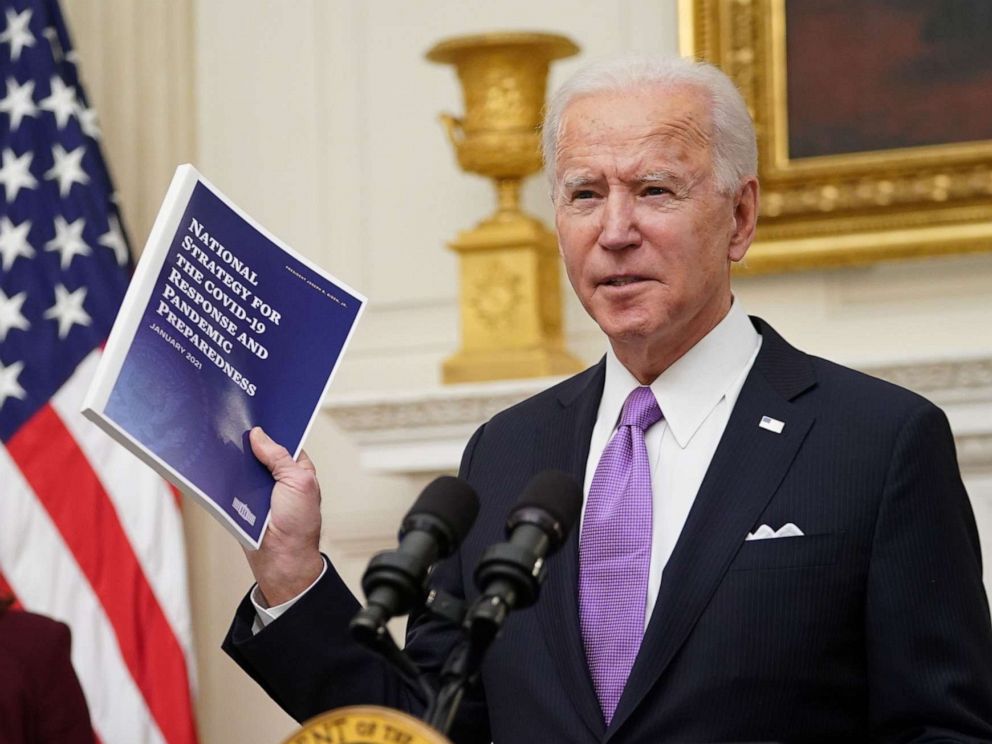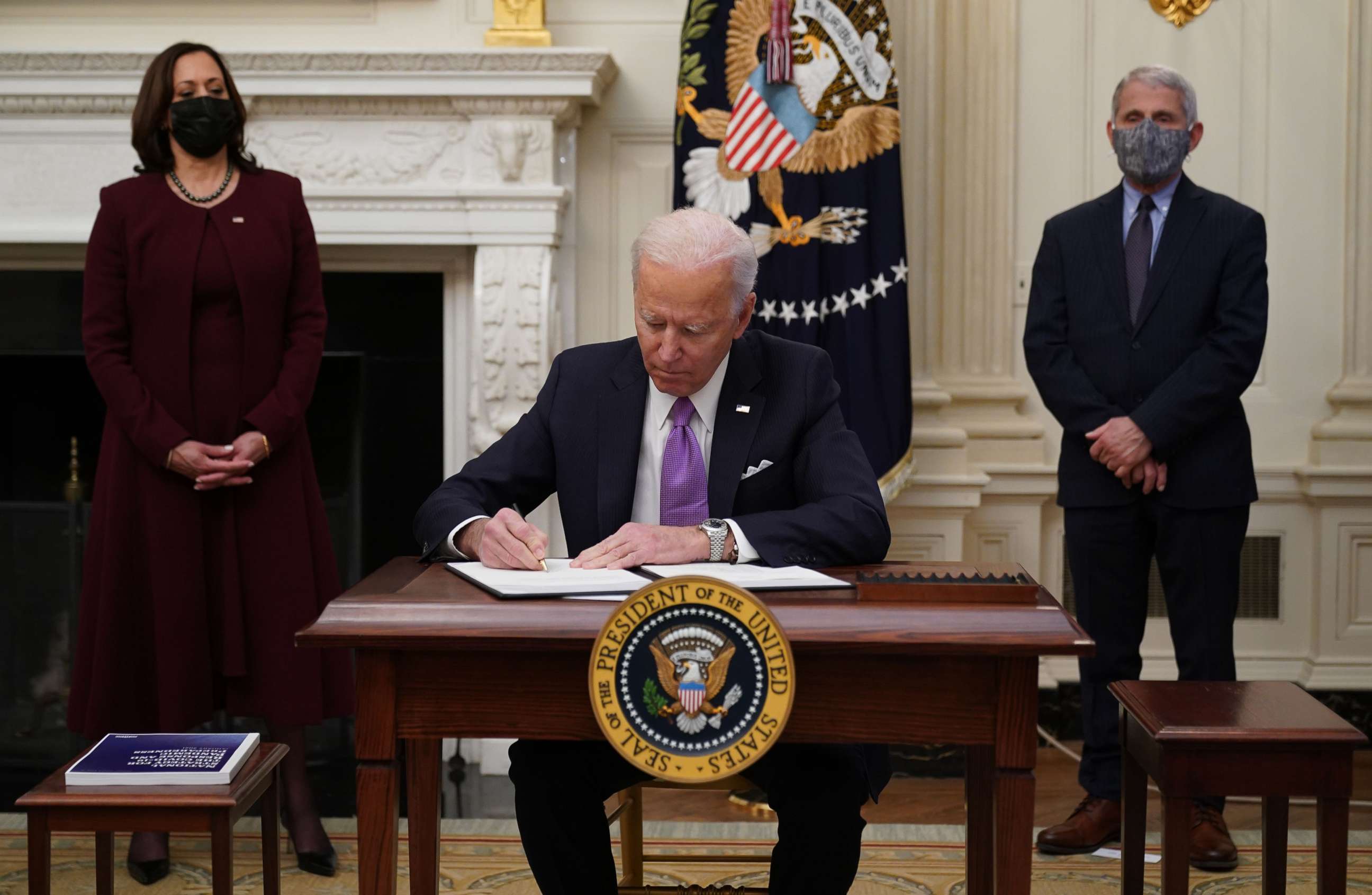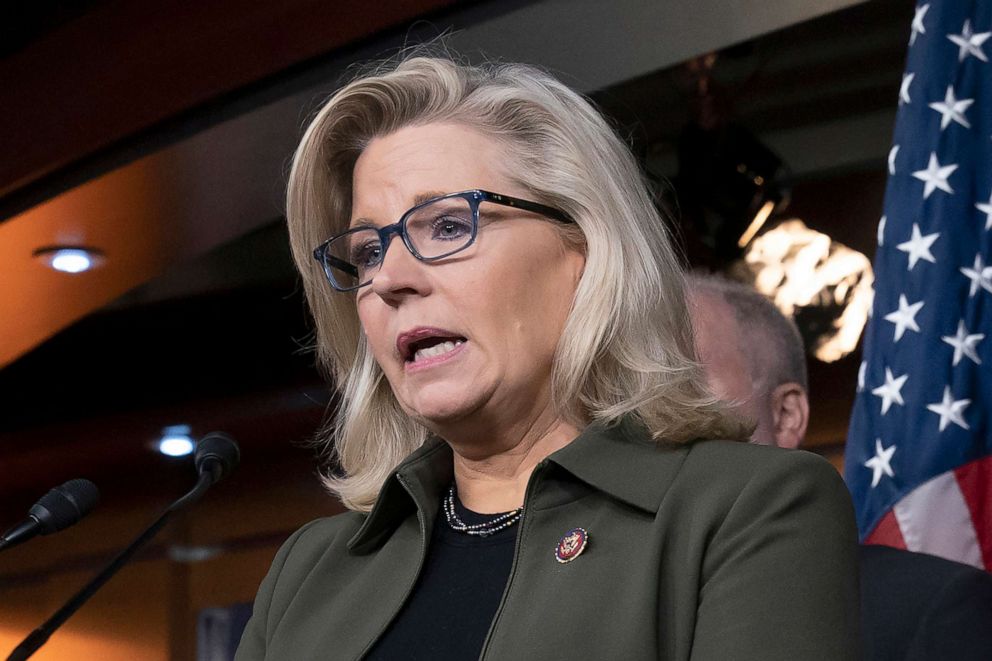Middle has its moment as Biden pitches plans: The Note
It will always be instructive to watch the progressive react to President Biden.
The TAKE with Rick Klein
It will always be interesting to consider where Senate Minority Leader Mitch McConnell might land -- though that might not be hard to predict.
It will always be instructive to watch the progressives react to President Joe Biden -- though that might not be hard to see coming, either.

The most important action of the early Biden days, if not the Biden years when taken as a whole, will be closer to the center. That's where the Biden White House is looking for support, in the hopes that enough moderates may be sick enough of endless political warfare to try to get a few things done.
Narrow majorities force a focus on the middle. So do other circumstances of the moment: There are lawmakers in both parties weary of name-calling and predictable paralysis, as the COVID-19 deal that sprung from the center late last year made clear.
Seeking the center will almost certainly require going small at first. It would mean Biden taking smaller early wins at the expense of potentially bigger ones later; think DREAMer legalization that could make comprehensive immigration reform less likely and pulling direct coronavirus relief payments out of the $1.9 trillion package Biden has outlined.
But consider what the partisan landscape looks like even after Biden's inaugural calling for unity. With President Donald Trump's impeachment trial looming, Senate leaders can't even agree yet on organizational rules for a power-sharing agreement, creating an odd situation where Republicans technically chair committees but Sen. Chuck Schumer, D-N.Y., is majority leader.
Biden made a pledge in his inaugural address: "Unity is the path forward." It's a challenge to lawmakers who might actually want to get back to making laws.
The RUNDOWN with MaryAlice Parks
On day one, Biden signed executive actions focused on combatting COVID-19.
His plan for Day Two is to sign more orders aimed at economic recovery.
The first is intended to expand federal food and nutrition assistance programs, create a system for Americans to directly request their coronavirus relief checks if they have not yet received them and allowing employees to qualify for unemployment insurance if they are specifically refusing to work in unsafe conditions.

The last agenda item is a profound one. For months, there have been heartbreaking stories of employees who have felt they had little recourse against employers being too cavalier with health guidelines.
Biden Friday also plans to lay the ground work to later leverage the the economic influence of the federal government to boost wages and employee benefits. Specifically, he is asking his administration to “start the work that would allow him to issue an Executive Order within the first 100 days that requires federal contractors to pay a $15 minimum wage and provides emergency paid leave to workers
It is a preliminary step that, down the road, could have serious ripple effects for employees if followed through on.
The TIP with Kendall Karson
The impeachment vote continues to splinter the GOP from within -- another sign of the lasting strength of Trump's influence over the Republican Party that he recast in his image, despite his departure from Washington.
The far-right flank of the party is set on punishing Rep. Liz Cheney, the chair of the House Republican conference and the legislative body's highest-ranking GOP woman, for her decision to hold Trump accountable for inciting the mob that ransacked the Capitol. A faction of House Republicans -- including Freedom Caucus members Reps. Jim Jordan, R-Ohio and Andy Biggs, R-Ariz., along with freshman Rep. Marjorie Taylor Greene, a combative QAnon promoter from Georgia -- believe Cheney "betrayed" the caucus and are calling for GOP leadership to strip her of her No. 3 position.

But Republican Leader Kevin McCarthy, who is still betting on staying closely aligned with Trump, is showing no signs of giving in to the effort to oust Cheney, telling reporters he supports her remaining as conference chair. He also said that despite the "growing pains" since the Jan. 6 insurrection, the caucus will discuss the matter at a private conference next week.
"There's questions that need to be answered -- style in which things were delivered. End of the day, we will unify," McCarthy said.
The backlash against Cheney isn't only confined to her colleagues, though. She drew a 2022 primary challenge on Wednesday -- one week after voting to impeach Trump -- by a pro-Trump state senator in Wyoming. And a local Republican Party in her home state, which voted to censure her, submitted the resolution to be voted on by the entire Wyoming GOP state central committee. The infighting over Cheney reflects a broader battle among Republicans over their future, and how to handle Trump in the coming months and years, as they look to retake the majority in Congress next year.
THE PLAYLIST
ABC News' "Start Here" podcast. Friday morning's episode features ABC News Senior White House correspondent Mary Bruce, who tells us about President Joe Biden's first full day in office, which he spent focused on the pandemic. ABC News Senior Washington reporter Devin Dwyer explains that talk of unity has been shortlived on Capitol Hill. And Jared Holt from the Atlantic Council's Digital Forensic Research Lab explains the challenge in decoupling people from the QAnon conspiracy theory now that Donald Trump is out of office. http://apple.co/2HPocUL
WHAT YOU NEED TO KNOW THIS WEEKEND
Download the ABC News app and select "The Note" as an item of interest to receive the day's sharpest political analysis.
The Note is a daily ABC News feature that highlights the key political moments of the day ahead. Please check back Monday for the latest.




